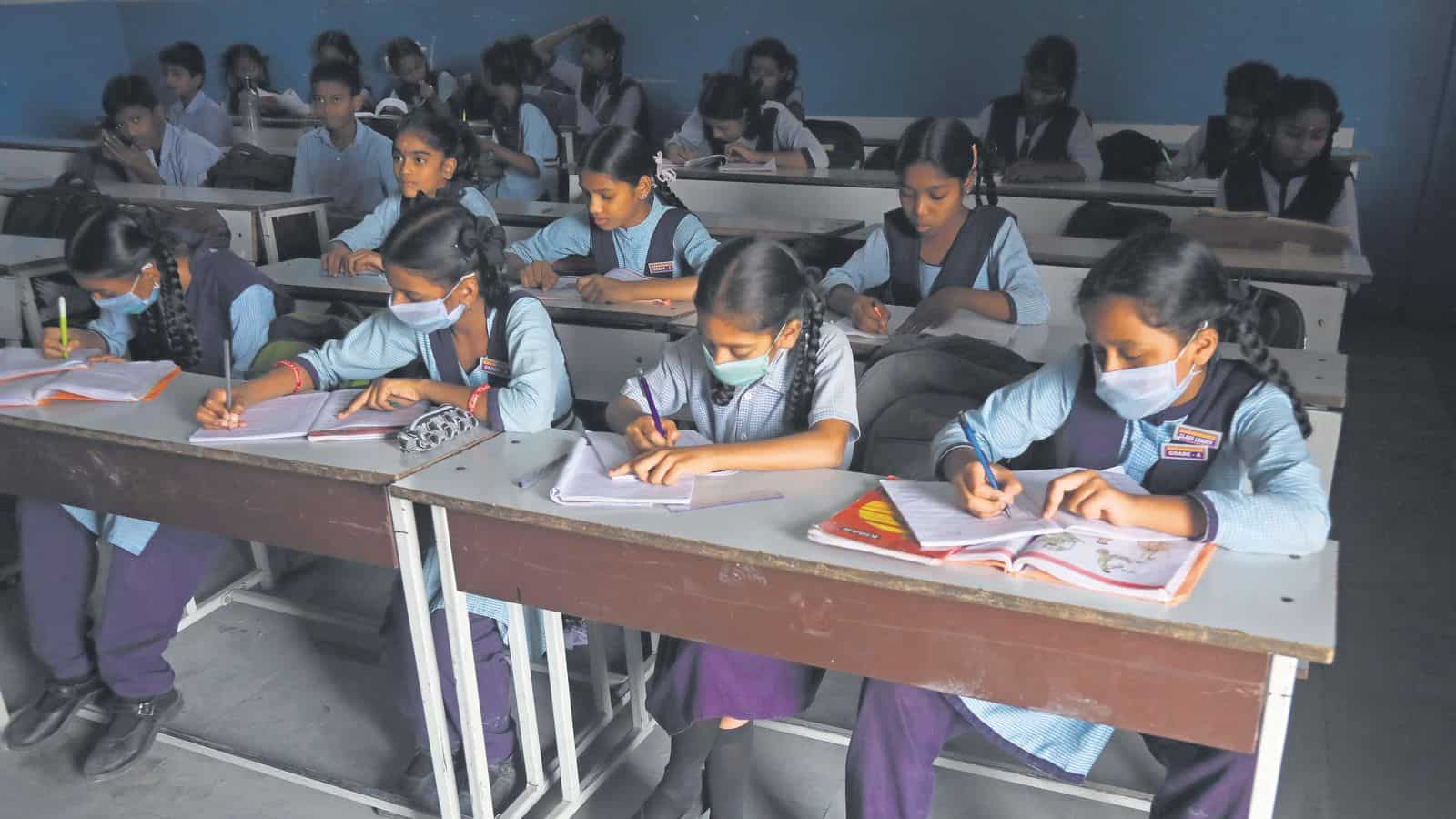The National Council of Educational Research (NCERT) recently conducted a national survey of students across different schools in India. The reports of the survey have shown students flagging schoolwork and examinations as a cause for stress and anxiety.
In the wake of such results in the survey, the NCERT has directed schools to establish a mental health advisory panel for raising awareness and to ensure the mental well-being of students.
The survey by NCERT was in the form of a self-reporting questionnaire in which students voluntarily participated. The respondents consisted of students from both middle school (VI to VIII) and secondary school (IX to XII).
The responses have shed light on the various mental health issues that students face growing up. Stressful episodes combined with the pressure of studies take a mental toll on growing children that often goes unrecognised. The survey has also revealed issues common in students like lack of concentration, disinterest during online classes, and peer pressure.

Based on the findings of the survey, the NCERT has released elaborate guidelines. It has been advised for the respective mental health advisory councils to be composed of teachers, the principal, parents, alumni, and also a few students themselves.
It has also been recommended for schools to implement mental health programs guided by professionals for immediate effectiveness among both students and their parents. This measure ensures a greater involvement of parents in the education and well-being of students.
The NCERT also mentions that while these practices are necessary to be implemented immediately, there should also be confidentiality. Observations from the survey have shown that rather than relying on adults, students dote more upon their school environment, especially friends, for sharing the issues they struggle with. Therefore, a positive and trustworthy environment needs to be encouraged within school campuses so that students can freely and openly talk about their problems with friends or teachers
The guidelines by NCERT also urge schools to conduct gender and age-appropriate mental health programs periodically throughout the year. According to the report, NCERT says, “Schools should have the means to notice activities, substance use, self-harm, depression, and developmental difficulties, administer first aid, and make appropriate referrals.”
While it is true that mental health conditions can exist beyond these stated few, an implementation of the given recommendations can be a great start to address mental health awareness among students within the Indian education system.
For the longest time the conversation on mental health has been sidelined and considered taboo. Especially within school campuses, mental health is a topic that is hardly discussed. The move to establish mental health advisory panels by the NCERT is undoubtedly one of the most crucial decisions regarding the conduct of educational organisations. The foundation of mental health advisory panels in every classroom shall usher in positivity and a significant change in sensitivity within classrooms.

A part of the guidelines released also says, “Schools are generally seen as spaces where students can grow in a safe and secure environment… It is the school’s responsibility to ensure the safety, security, health and well-being of all children in schools and hostels.”
It proposes that teachers must be given training in identifying early signs in students for separation anxiety, communication issues, attachment issues, school refusal, anxiety patterns, depressive states, excessive internet usage, hyperactivity, intellectual or learning disability, and other issues.
Also read: Students Speak Up Against Deteriorating Mental Health In Virtual Schools
It is therefore extremely important that schools recognise mental health patterns among students since children spend most part of their teenage lives within school campuses. Qualitative and quantitative studies should be further exercised to analyse mental health conditions of students
It has been urged for every school to ensure early identification and intervention in case of students who face mental health issues. It also helps to address stressors in school like bullying and harassment which are common especially among young teenagers.
The NCERT also mentions that while these practices are necessary to be implemented immediately, there should also be confidentiality. Observations from the survey have shown that rather than relying on adults, students dote more upon their school environment, especially friends, for sharing the issues they struggle with.
Therefore, a positive and trustworthy environment needs to be encouraged within school campuses so that students can freely and openly talk about their problems with friends or teachers.
Teachers should spread awareness by talking more to students in classrooms and educating them on mental health issues. Students should be taught methods of adaptability not just with their surroundings but also themselves.
An encouragement in speech regarding mental health conditions and personal insecurities not only helps students to overcome their emotional barriers, but also helps them rebuild self-confidence.

These measures have been especially necessary in the present context because of how the pandemic has affected students and the overall education system everywhere. The disruption of school-based activities has naturally increased the burden on parents.
Since all students do not come from privileged family backgrounds, impacts of the increasing stress on families have been passed down to the students. Parents tend to overlook smaller issues in their children while they are at home which lead to larger problems. While this is nobody’s fault, ignorance is never too good in the long run.
It is therefore extremely important that schools recognise mental health patterns among students since children spend most part of their teenage lives within school campuses. Qualitative and quantitative studies should be further exercised to analyse mental health conditions of students.
The NCERT survey, however, was performed beyond the scope of live interaction on a limited spectrum of students who had access to computer literacy. It therefore did not reach students from remote areas or with lesser computer access.
Nevertheless, the decision to establish a mental health advisory panel by the NCERT can be called one of the biggest, most relevant proposals of renovation in the current education system. It undoubtedly shows potential to bring an exemplary change within our school campuses.
Also read: Home As Workplace—A Longstanding Problem For Homeworkers
About the author(s)
Mrittika is a student of English. She is usually found expressing her love for art through words and music. At other times she is most likely traveling around the town trying new delicacies and imagining her life as a Greta Gerwig movie




